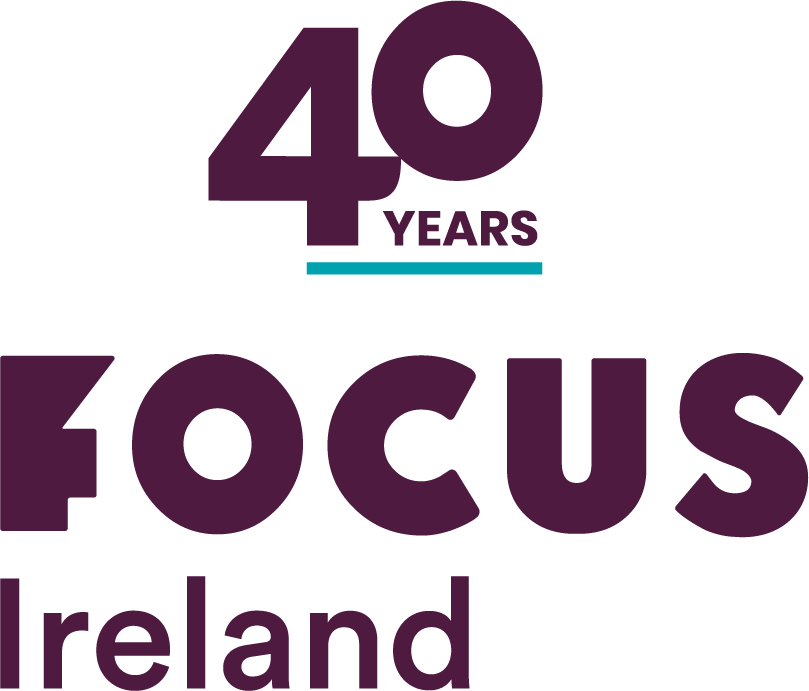MORE URGENT ACTION IS NEEDED TO PREVENT FIGURES RISING DURING 2023
6th January 2023
Figures published by the Department of Housing today show the number of people officially homeless continued to rise for the 11th consecutive month despite the Government’s introduction of a Winter Eviction Ban from the start of November 2022. The number of people who are homeless rose by 145 people since October and by 27% compared with a year ago (8,917, November 2021). Focus Ireland argued that the continued rise highlighted how urgently the Government needs to act to take advantage of the breathing space created by the Winter Eviction Ban to stop figures increasing even further in 2023. The housing and homeless charity stressed that without the eviction ban, current figures would be significantly higher, and the measure has prevented many vulnerable individuals from falling into homelessness, but further action is critically needed.
Focus Ireland CEO Pat Dennigan said: “While we warmly welcome the words of commitment towards addressing the homeless crisis from both the Minister of Housing, Darragh O’Brien and new Taoiseach Leo Varadkar, we need to see those words turned into urgent action. Focus Ireland know the homeless crisis is solvable. 2,706 new build social homes were delivered between January and September 2022, and while final figures for 2022 will not be released until March, Minister O’Brien has said that most newly built social homes were completed towards the end of 2023. The Minister has indicated that last year more social homes were built than for very many years, which would mean that local authorities could be allocating upwards of 3,000 new social homes over the next few months. The Government needs to find a way of allocating these homes which creates a fair balance between the families that have been years on the waiting list living in unsuitable conditions and to those families who are trapped in homelessness but have not been registered for so long.”
Analysis by Focus Ireland shows that the ‘Winter Eviction Ban’ will have a much more limited impact on homelessness than the ‘Covid Eviction Ban’ which saw homelessness fall by almost 20% from March 2020 to May 2021 (from 9,907 to 7,991).
Mr Dennigan explains: “During the pandemic, we saw fewer families becoming homeless due to the eviction ban, but we also saw an increased number of families moving out of homelessness as private rental properties became available and local authorities prioritised homeless people for social housing. During this Winter Eviction Ban we expect to see a similar fall in families becoming homeless, which is very welcome, but we do not expect to see an increase in families moving out of homelessness – which is now lower than it has been since this crisis began. Without further urgent action, we will come to the end of the eviction ban in March, with emergency homeless accommodation still full up, and facing into a new wave of Spring evictions. We can no longer rely on the private sector to provide a route out of homelessness, highlighting the importance of new social housing units that will become available over the next few months.”
While most attention is given to the fact that too many people are homeless, Mr Dennigan also expressed concern about the length of time people remain in emergency accommodation.
He added: “The number of people who have been homeless for more than six months is increasing and in Dublin there are now 178 families and 574 single people who have been in homeless accommodation for over two years. This is unacceptable. It’s important to remember that when we discuss these figures we are talking about human beings struggling every day and the trauma of long-term homelessness can leave a lasting trauma long after they finally find a home.”
Lifting of eviction ban in April could increase figures
While emphasising the potential for progress in 2023, Mr Dennigan warned of the dangers if the Government does not act effectively and urgently, with a potential surge once the eviction ban is lifted in April.
“If we cannot support more households out of homelessness into new supply that is becoming available over the new few months, we will face a Spring wave of evictions in April when the ban ends, with no emergency accommodation available for them. It is vital that every action possible is taken between now and then to prevent that renewed crisis from happening. During 2022 many small landlords sold their properties, which significantly reduced supply contributing to an increase in homelessness. The Housing Minister has stated he will take measures to encourage landlords not to sell up, and he we need to see urgent delivery of meaningful proposals to achieve that. We also need a constructive engagement with the over 1,000 landlords who have already issued Notice of Terminations, and are currently waiting for the eviction ban to end before they sell up. The lasting solution to homelessness involves more social and affordable housing but in the short term the continued departure of small landlords would result in further increases in homelessness and cause enormous hardship to many people.”
Focus Ireland also welcome new Government proposals to speed up the construction of social housing on land which had purchased by local authorities during the Celtic Tiger era but had been unused due to the level of debt burden associated with it.
“The proposed combination of innovative financing, modern construction methods and stream—lined planning are exactly the sort of urgent initiatives we have been proposing for years. It is crucial that there is effective communication with neighbouring communities and that the buildings are delivered to the highest standards, if that can be delivered this will be a very welcome initiative”, said Mr Dennigan.
The November figures also reported 1616 families with 3494 children homeless. Child homelessness is up 37% since last year while Family homelessness increased 46% since November 2021.

